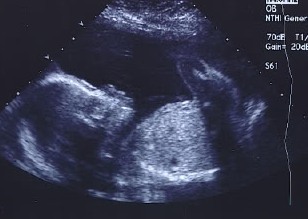 People discuss post-partum depression rather openly nowadays; as someone who had 3 children I can feel for those who have experienced it, as I had my moments. I was happy to hear when actress Brooke Shields came forward with her experience, because she helped normalize something some still felt they had to suffer in silence with. Yet something that we do not hear about often is the depression some women feel while they are pregnant, so I was glad when I found some research discussing this very important issue.
People discuss post-partum depression rather openly nowadays; as someone who had 3 children I can feel for those who have experienced it, as I had my moments. I was happy to hear when actress Brooke Shields came forward with her experience, because she helped normalize something some still felt they had to suffer in silence with. Yet something that we do not hear about often is the depression some women feel while they are pregnant, so I was glad when I found some research discussing this very important issue.
Isn’t pregnancy supposed to be the happiest time in a woman’s life? That very question is the reason research into prenatal depression is important. Not everyone has happy, blissful pregnancies. For those who are regularly ill, overly exhausted, extremely emotional, or just in general feel like crap, pregnancy can be a task that must be undergone as a means to an end. I was one of those women. In all 3 of my pregnancies I was miserable most of the time. I remember crying often because of being so overwhelmed, and there was little anyone could do to help me because I was pregnant. Besides, I was supposed to be happy so I felt guilt and shame over the way I was really feeling. It is a battle no one wanted to discuss or even deal with – tackling depression while pregnant.
When I found this research on prenatal pregnancy its focus was on commonalities between pregnant women with depression in order to find a link. It was published in the Journal of Women’s Health, and the research took place at University of North Carolina at Chapel Hill School of Medicine. The outcome was not surprising but important to reiterate: women who were abused during their lifetime (physically or sexually) and women who had an eating disorder in their lifetime experienced disproportionally higher rates of depression both during and after pregnancy than women who had not experienced either.
Since we know that such findings are true for depression in general it should not be a surprise that these women also experience higher rates of prenatal and post-partum depression. Those are times when women can be at their most vulnerable, considering the physical and hormonal changes occurring. But what should be highlighted from this is how important it is for women to be screened for depression during pregnancy. Since the prevailing attitude is that women are happiest when pregnant, it is too easy for practitioners to not even consider such an important issue.

